Prabakaran had everything: territory, international support and committed fighters. Senior journalist Shyam Tekwani, who has covered the LTTE and Sri Lanka for almost three decades tracks the alarming rise and astonishing fall of a man who sought to live to fight another day, but found only death at the hands of his nemesis.
The CFA (Ceasefire Agreement) went into cold limbo. Skirmishes broke out and violations of the agreement accumulated. The Scandinavian countries comprising the Sri Lanka Monitoring Mission recorded 3,830 violations by the LTTE against 351 by the Government of Sri Lanka between 20 February 2002 and 30 April 2007.
In March 2004, Prabakaran tried averting the crisis he saw coming his way by summoning Karuna to Jaffna on an official pretext. Karuna had learnt his lessons from the Mahathaya experience. He ignored the summons and split the seemingly monolithic outfit, taking with him a big chunk of the battle-hardened fighters he had trained. With the East in turmoil, Prabakaran saw his Eelam beginning to shrink. Months later, the tsunami further breached the LTTE’s wall of impregnability, damaging its bases along the northeastern coast.
Chandrika Kumaratunga, then heading the government after having survived a suicide bomber attack, quickly learnt from Prabakaran’s successful diplomatic offensives. She dispatched her Tamil Foreign Minister, Lakshman Kadirgamar, to world capitals on a mission to get the international community to act against the LTTE’s interests in their respective countries. Kadirgamar was beginning to notch up diplomatic successes, having got the United Kingdom to proscribe the group in 2001. He was killed by a LTTE sniper in August 2005 just when he seemed on the verge of getting some more countries to proscribe the group.
And when the elections came the following year (2005), Prabakaran compounded his earlier mistakes. He ensured — by forbidding Tamils to cast their vote — the victory of somebody who, he believed, was yet another politician even more infirm of purpose than his predecessors and therefore of immense value to his plans, little realising that he would finally be meeting his nemesis in the Rajapakse administration. Peace is inimical to Prabakaran’s existence. The new government started office, as all new governments in Colombo were wont to do, with a call for peace. After one round of ceasefire talks in 2006, Prabakaran was back to business. His woes of the three previous years in his new avatar of ‘statesmanpolitician’ were proving to him that he just was not cut out to be a man of peace.
In his 2006 November annual speech, after his attempts to assassinate the Chief of the Army and the Secretary of Defence in Colombo, he rued, “We postponed our plan to advance our freedom struggle twice to give even more chances to the peace efforts, once when the tsunami disaster struck and again when President Rajapakse was elected.”
He set out to reassert his authority over the East — and faced an army that was well-armed and well-trained and motivated as never before and one that was working with unprecedented intelligence provided by his breakaway commander, Karuna. Prabakaran lost the East — and from there on, he lorded over an unending series of military defeats.
From among the many reasons being attributed to his incredulously rapid downfall, the one that would without any trouble resonate with those who have dealt with Prabakaran would be his sense of supreme self-importance. He is seen as a megalomaniac who hijacked the legitimate grievances of the Tamils to gratify his vision of himself and failed to see that the switch from guerilla band to conventional army would be disastrous.
For the sanguinary among us — the chief reason for his downfall was the failure of his legendary Black Tiger suicide bombers and his celebrated Intelligence chief, Pottu Amman.
For someone who pioneered the use — and masterminded remarkable innovations — of suicide bombers, Prabakaran’s Black Tigers seemed to have reached a dead-end. President Chandrika Kumaratunga was the first miracle of the Eelam war — as the first ever survivor of a Black Tiger attack, at an election rally in December 1999.
Then came the failures in 2006 that cost him everything — General Sarath Fonseka, Commander of the Sri Lanka Army became the second survivor of a suicide attack in April. Prabakaran’s trusted tool of political persuasion, the Black Tiger, was beginning to let him down. And when Gotabaya Rajapkse, the Secretary of the Defence and the brother of the President escaped a suicide attack in December, it was curtains for Prabakaran. The last two failures led to his destruction. Clearly, Prabakaran was facing a short supply of efficient Black Tigers. He was desperate enough to use recruits whose mental aptitude didn’t match their ferocious commitment. A woman bomber sent to kill the Tamil Cabinet Minister, Douglas Devananda, in his Colombo office in November 2007, triggered her bra bomb when she discovered her target was not available for the day, killing herself and the Minister’s secretary.
MEETING HIS MATCH
The other factor that led to his precipitous defeat is that Prabakaran did not count on the troika (the President, the Army Chief and the Defence Secretary) calling his bluff. His elaborate deceptions of invincibility had begun cracking — first, with the exit of Karuna and then by the steady inroads that the specially trained units of the Sri Lankan Army’s commandos were making. The chronic political oneupmanship in Colombo over the Eelam war between the two national parties — the UNP and the SLFP — which had contributed largely to the growth of the LTTE and the prolongation of the war, was contained by the Rajapakse administration. The Rajapakse brothers pulled out a page from the Bush counter-terrorism doctrine — niceties be damned.
With international assistance — material and moral — for the war on terror pouring in from China, Pakistan and the US, the defence budget was increased dramatically; state of the art equipment procured, and counter-terrorism and counter-insurgency training enhanced. By mid-2006, Canada and the European Union joined the growing list of countries proscribing the LTTE. This clogged Prabakaran’s supply lines and fund collection and contributed to diminishing his ability to fight back the surge of a newly professionalised force. In the Rajapakse brothers, Prabakaran finally met with an enemy as ruthless and unswervingly committed in their goal as he.
As he presides over the destruction of his dream, Prabakaran must already be plotting his next move even as he plans his escape from the ever-shrinking space he is left with to hide in. Staying alive, going back to the basics and brushing up on Sun Tzu. His financially formidable supporters among the diaspora will be told that it is only territory that has been lost and as long as they are behind him he will deliver unto them the dream he has been promising them. Until then, Eelam will, like Khalistan, continue to live on in the virtual world.
His long-term objective, however, will be to foil every effort made by Colombo to redress Tamil grievances and also ensure that he, and only he, remains the sole leader of the Tamils. No moderate Tamil leader or group will be allowed to take his place. Any attempt to nurture a new leadership will be foiled by assassinations and acts of terror — just as he had, in the mid-80s, done the biggest disservice to the Tamil cause by systematically wiping out the leaders of the other militant Tamil groups that existed and decimating their organisations in a move to emerge as the sole representative of the Tamil cause. Elections will be prevented by violence. Prabakaran will patiently wait for complacency on Colombo’s part and any ensuing security lapses to stage devastating acts of terror. In essence, he will start all over again and could potentially claw his way back if allowed to.
The key to ensuring that Prabakaran goes down the same road and fades away as Idi Amin did lies in the sincerity, determination and tenacity of the Rajapakse government (and every other that follows it). Rolling back every discriminatory law and practice against the Tamils and guaranteeing them equal rights and opportunities would need to be its first priority. Ignoring the Tamil diaspora, however much it may rankle, would not be beneficial for Colombo. Colombo only has to remember that the rise and dominance of Prabakaran was largely dependent on Colombo’s policies and attitudes.
As an immediate goal, Prabakaran will be counting on the few Black Tigers lurking in Colombo to blow up at least one of the troika. This would give him a respite, however brief, and save him from biting into the vial he sometimes carries around his neck.
And should he be forced to feed on the cyanide, it would mean the absolute destruction of his fantasy and the organisation he has so brutally cultivated around himself. His death would splinter the group, leaving his surviving lieutenants scrambling for the throne and the vast financial empire Prabakaran has industriously built across three score countries. His son and heir apparent, Charles Anthony, is not considered a serious contender for the top job.
In this hour of unprecedented defeat, the bluster and the belief in his personal immortalitywill not have dimmed. IwonderifPrabakaran’shandshakehaschanged. For an answer to that, over to the friendly Arakan rebel inMyanmar or the sympathetic politician in Europe, whose extendedhandwelcomesPrabakaranashore as he searches for a sanctuary. In all likelihood, Prabakaran — with all his chips down—would impress his saviour with a firm, masculine shake of the hand.
The Man Who Destroyed Eelam
The Man Who Destroyed Eelam 2
The Man Who Destroyed Eelam 3

The CFA (Ceasefire Agreement) went into cold limbo. Skirmishes broke out and violations of the agreement accumulated. The Scandinavian countries comprising the Sri Lanka Monitoring Mission recorded 3,830 violations by the LTTE against 351 by the Government of Sri Lanka between 20 February 2002 and 30 April 2007.
In March 2004, Prabakaran tried averting the crisis he saw coming his way by summoning Karuna to Jaffna on an official pretext. Karuna had learnt his lessons from the Mahathaya experience. He ignored the summons and split the seemingly monolithic outfit, taking with him a big chunk of the battle-hardened fighters he had trained. With the East in turmoil, Prabakaran saw his Eelam beginning to shrink. Months later, the tsunami further breached the LTTE’s wall of impregnability, damaging its bases along the northeastern coast.
Chandrika Kumaratunga, then heading the government after having survived a suicide bomber attack, quickly learnt from Prabakaran’s successful diplomatic offensives. She dispatched her Tamil Foreign Minister, Lakshman Kadirgamar, to world capitals on a mission to get the international community to act against the LTTE’s interests in their respective countries. Kadirgamar was beginning to notch up diplomatic successes, having got the United Kingdom to proscribe the group in 2001. He was killed by a LTTE sniper in August 2005 just when he seemed on the verge of getting some more countries to proscribe the group.
And when the elections came the following year (2005), Prabakaran compounded his earlier mistakes. He ensured — by forbidding Tamils to cast their vote — the victory of somebody who, he believed, was yet another politician even more infirm of purpose than his predecessors and therefore of immense value to his plans, little realising that he would finally be meeting his nemesis in the Rajapakse administration. Peace is inimical to Prabakaran’s existence. The new government started office, as all new governments in Colombo were wont to do, with a call for peace. After one round of ceasefire talks in 2006, Prabakaran was back to business. His woes of the three previous years in his new avatar of ‘statesmanpolitician’ were proving to him that he just was not cut out to be a man of peace.
In his 2006 November annual speech, after his attempts to assassinate the Chief of the Army and the Secretary of Defence in Colombo, he rued, “We postponed our plan to advance our freedom struggle twice to give even more chances to the peace efforts, once when the tsunami disaster struck and again when President Rajapakse was elected.”
He set out to reassert his authority over the East — and faced an army that was well-armed and well-trained and motivated as never before and one that was working with unprecedented intelligence provided by his breakaway commander, Karuna. Prabakaran lost the East — and from there on, he lorded over an unending series of military defeats.
From among the many reasons being attributed to his incredulously rapid downfall, the one that would without any trouble resonate with those who have dealt with Prabakaran would be his sense of supreme self-importance. He is seen as a megalomaniac who hijacked the legitimate grievances of the Tamils to gratify his vision of himself and failed to see that the switch from guerilla band to conventional army would be disastrous.
For the sanguinary among us — the chief reason for his downfall was the failure of his legendary Black Tiger suicide bombers and his celebrated Intelligence chief, Pottu Amman.
For someone who pioneered the use — and masterminded remarkable innovations — of suicide bombers, Prabakaran’s Black Tigers seemed to have reached a dead-end. President Chandrika Kumaratunga was the first miracle of the Eelam war — as the first ever survivor of a Black Tiger attack, at an election rally in December 1999.
Then came the failures in 2006 that cost him everything — General Sarath Fonseka, Commander of the Sri Lanka Army became the second survivor of a suicide attack in April. Prabakaran’s trusted tool of political persuasion, the Black Tiger, was beginning to let him down. And when Gotabaya Rajapkse, the Secretary of the Defence and the brother of the President escaped a suicide attack in December, it was curtains for Prabakaran. The last two failures led to his destruction. Clearly, Prabakaran was facing a short supply of efficient Black Tigers. He was desperate enough to use recruits whose mental aptitude didn’t match their ferocious commitment. A woman bomber sent to kill the Tamil Cabinet Minister, Douglas Devananda, in his Colombo office in November 2007, triggered her bra bomb when she discovered her target was not available for the day, killing herself and the Minister’s secretary.
MEETING HIS MATCH
The other factor that led to his precipitous defeat is that Prabakaran did not count on the troika (the President, the Army Chief and the Defence Secretary) calling his bluff. His elaborate deceptions of invincibility had begun cracking — first, with the exit of Karuna and then by the steady inroads that the specially trained units of the Sri Lankan Army’s commandos were making. The chronic political oneupmanship in Colombo over the Eelam war between the two national parties — the UNP and the SLFP — which had contributed largely to the growth of the LTTE and the prolongation of the war, was contained by the Rajapakse administration. The Rajapakse brothers pulled out a page from the Bush counter-terrorism doctrine — niceties be damned.
With international assistance — material and moral — for the war on terror pouring in from China, Pakistan and the US, the defence budget was increased dramatically; state of the art equipment procured, and counter-terrorism and counter-insurgency training enhanced. By mid-2006, Canada and the European Union joined the growing list of countries proscribing the LTTE. This clogged Prabakaran’s supply lines and fund collection and contributed to diminishing his ability to fight back the surge of a newly professionalised force. In the Rajapakse brothers, Prabakaran finally met with an enemy as ruthless and unswervingly committed in their goal as he.
As he presides over the destruction of his dream, Prabakaran must already be plotting his next move even as he plans his escape from the ever-shrinking space he is left with to hide in. Staying alive, going back to the basics and brushing up on Sun Tzu. His financially formidable supporters among the diaspora will be told that it is only territory that has been lost and as long as they are behind him he will deliver unto them the dream he has been promising them. Until then, Eelam will, like Khalistan, continue to live on in the virtual world.
His long-term objective, however, will be to foil every effort made by Colombo to redress Tamil grievances and also ensure that he, and only he, remains the sole leader of the Tamils. No moderate Tamil leader or group will be allowed to take his place. Any attempt to nurture a new leadership will be foiled by assassinations and acts of terror — just as he had, in the mid-80s, done the biggest disservice to the Tamil cause by systematically wiping out the leaders of the other militant Tamil groups that existed and decimating their organisations in a move to emerge as the sole representative of the Tamil cause. Elections will be prevented by violence. Prabakaran will patiently wait for complacency on Colombo’s part and any ensuing security lapses to stage devastating acts of terror. In essence, he will start all over again and could potentially claw his way back if allowed to.
The key to ensuring that Prabakaran goes down the same road and fades away as Idi Amin did lies in the sincerity, determination and tenacity of the Rajapakse government (and every other that follows it). Rolling back every discriminatory law and practice against the Tamils and guaranteeing them equal rights and opportunities would need to be its first priority. Ignoring the Tamil diaspora, however much it may rankle, would not be beneficial for Colombo. Colombo only has to remember that the rise and dominance of Prabakaran was largely dependent on Colombo’s policies and attitudes.
As an immediate goal, Prabakaran will be counting on the few Black Tigers lurking in Colombo to blow up at least one of the troika. This would give him a respite, however brief, and save him from biting into the vial he sometimes carries around his neck.
And should he be forced to feed on the cyanide, it would mean the absolute destruction of his fantasy and the organisation he has so brutally cultivated around himself. His death would splinter the group, leaving his surviving lieutenants scrambling for the throne and the vast financial empire Prabakaran has industriously built across three score countries. His son and heir apparent, Charles Anthony, is not considered a serious contender for the top job.
In this hour of unprecedented defeat, the bluster and the belief in his personal immortalitywill not have dimmed. IwonderifPrabakaran’shandshakehaschanged. For an answer to that, over to the friendly Arakan rebel inMyanmar or the sympathetic politician in Europe, whose extendedhandwelcomesPrabakaranashore as he searches for a sanctuary. In all likelihood, Prabakaran — with all his chips down—would impress his saviour with a firm, masculine shake of the hand.
The author is a former photo-journalist, currently teaching media and international relations at NTU, Singapore
shyamtekwani@hotmail.com
(Published in Tehelka Magazine, Volume 6 Issue 20, Dated May 23, 2009)
The Man Who Destroyed Eelam
The Man Who Destroyed Eelam 2
The Man Who Destroyed Eelam 3
















































































































































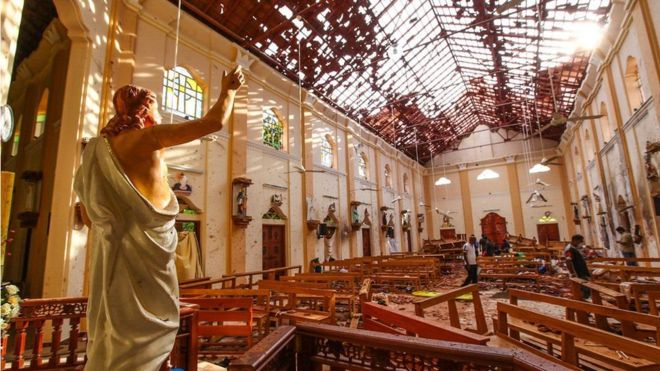















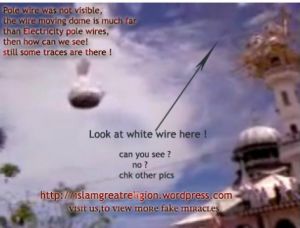



















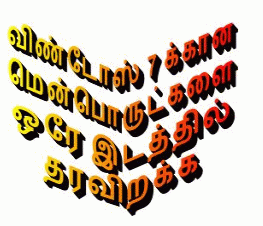













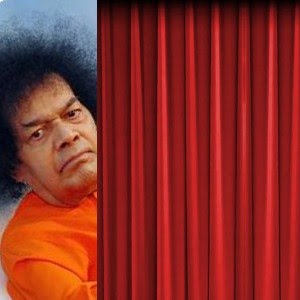













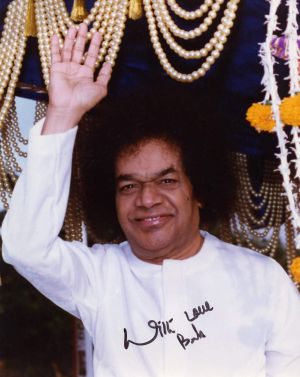


























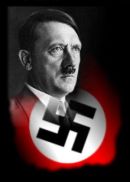





.jpg)
கருத்துகள் இல்லை:
கருத்துரையிடுக